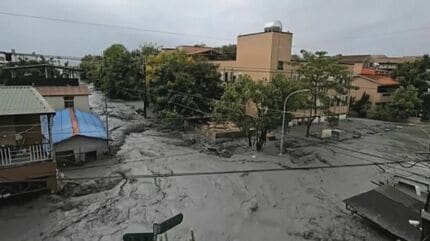Suffering the harsh wrath of a recent typhoon, Taiwan is currently facing a tragic aftermath. The calamitous event has so far resulted in the death of two individuals, while 30 others are reported missing. In this continuously unfolding drama, unmanned rescue operations are adopted, with the hope to find the remaining citizens. The timeline of events remains uncertain, as the natural disaster has caused much destruction and left a somber ambiance.
Japan, being prone to typhoons itself, frequently empathizes with such incidents and extends support in forms of rescue operations and aid. Japanese society highly values safety, preparation for disasters, and effective response mechanisms to such natural catastrophes. Such occurrences stimulate the national dialogue on climatic changes and disaster management.
Like Japan, the US and EU have disaster response and recovery mechanisms in place, extending mutual aid during emergencies. However, climate change dialogues and disaster management strategies are more politically polarized in the US and EU, reflecting differences in governance, societal values, and beliefs.

